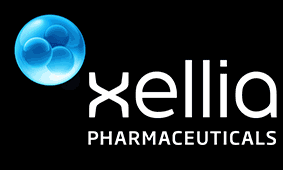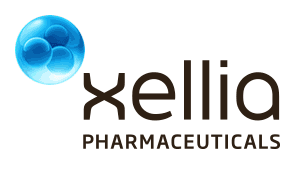This is a translated version of the original article.
Fighting the slow pandemic
written by John Bo Northroup
There is a need for long-term solutions in developing new and more targeted antibiotics otherwise, there is a risk for gradual antibiotic resistance becoming a reality, predicts the CEO of Xellia Pharmaceuticals.
Carl-Åke Carlsson is the CEO of a specialty pharmaceutical company that has taken a hundred-year journey from pharmacists in Oslo, to becoming a global manufacturer of generic antibiotics; now developing and producing antibiotics in Europe, the USA and China. This provides a good background for the CEO of Xellia Pharmaceuticals to comment on current trends in the industry and particularly within the field of antibiotics.
We tend to forget about infections, as we take for granted that they can be treated with antibiotics. Infections that were deadly in the past, are cured today with antibiotics. But, with the use of antibiotics excessively for too many years, and especially of the broad-spectrum antibiotics, comes the reality of the gradual threat to populations becoming resistant to anti-infective treatments.
"It is good that decision-makers and the general public are taking the current Corona pandemic very seriously, but I would like to see more awareness and a different attitude towards what we call AMR (antimicrobial resistance) and antibiotic stewardship," comments Carl-Åke Carlsson.
Antibiotic stewardship and AMR
The concept of antibiotic stewardship concerns responsible use of antibiotics and curbing overconsumption that, as you know, can lead to resistance. This requires more accurate or correct use of existing antibiotics and focus on development of new treatments in this field. “We need to stop prescribing the very broad-spectrum antibiotics. The prerequisite for more targeted use of antibiotics is better diagnostics as well as a development of antibiotics targeted towards specific bacteria ‘single bug, single drug’ says Carl-Åke Carlsson.
The challenge with diagnosis is that today's methods take too long. There is a need for diagnostics that can be performed at the hospital bed without having to send samples for culturing or to a laboratory for analysis. Covid-19 and the experience gained with test methods, have the potential to help find solutions, also for diagnosing bacterial infections.
Subscription model
According to Carl-Åke Carlsson, it is also a problem that there is a drought in antibiotic discovery, and this is connected to price. “The large pharmaceutical companies have problems obtaining a sufficiently good price for new antibiotics, and this has affected research and development. Already now, the price of existing narrow-spectrum antibiotics is so low that the manufacturers are finding it difficult to cover their expenses. This could lead to manufacturers halting their production and sale of certain types of narrow-spectrum antibiotics altogether,” says Carl-Åke Carlsson.
The solution may be to resort to a subscription model where countries "buy subscriptions" for certain types of antibiotics, which will guarantee the manufacturers a fixed price every year, regardless of consumption, and thus ensure that these treatments are produced and maintained. England and Sweden are experimenting with these models and the US has proposed a ‘Pasteur Act’ with the same purpose. As with all medical treatments, however, such a subscription model will not be free and it presupposes that one is willing to pay for it. At the same time, it is part of a broader debate on the fight against resistant bacteria, also in agriculture, which is referred to as "the slow pandemic", and where the current Corona pandemic can hopefully contribute to more awareness of the issue.
"This is important, because if we do not act properly and develop new and targeted antibiotics, then more people will risk dying from infections than, for example, cancer in the future, as described in the O'Neill report from 2016,” warns Carl-Åke Carlsson.
Supply chains and repatriation of production
Shutting down supply routes, both sea and especially air transport, during the Corona pandemic has exposed vulnerabilities in global supply chains across industries worldwide. Business leaders in all industries are currently assessing how supply chains can be regionalized to a greater extent and made less vulnerable. Life Science cannot escape these considerations either, in the light of the fact that increasingly more pharmaceutical production has been moved to regions such as India and the Far East in recent decades. At the same time, there is an extra dimension because health and protection against infection and dangerous diseases have received a completely different political attention, as a result of the Corona pandemic.
"I am quite confident that an important country like the US will repatriate and restore critical production capacity within life science. These were areas of focus that the previous administration had and the new president will likely continue to work on,” predicts Carl-Åke Carlsson.
He points out that in this connection, it will be important to keep an eye on whether the repatriation of production also leads to protectionism, which would be very unfortunate.
Sustainability binds purpose and values together
Xellia strives to be a sustainable company that adds value to society and actively collaborates with partners to address global challenges. The company's Sustainability Framework is divided into Social, Environmental and Economic responsibility, which is in line with the commitments of the United Nations Sustainability Development Goals, UN Global Compact Ten Principles, and various other authorities and partnerships, which Xellia is part of. Xellia's Philanthropic Engagement is tied to the collaboration with SOS Children's Villages Denmark, which began in 2015 when Xellia commenced supporting the operations of the SOS Children's Villages' Medical Center in Eldoret in Kenya, for a three-year period and financing the establishment of a maternity ward at the Medical Center. Xellia continues to support the work of SOS Children’s Villages, and has since its first partnership, supported the preventive work with families in the local community, where SOS Children's Villages helps the vulnerable families, who are in danger of falling apart, by developing the financial and social skills of the heads of the households.
“At Xellia, our purpose is to save and enhance lives by leading the fight against infections. This purpose and our mindset in relation to helping people in need is deeply ingrained in the DNA of our company. We are very proud to be a main partner of SOS Children's Villages Denmark,” Carl-Åke Carlsson
Products
Xellia Pharmaceuticals manufactures and supplies active pharmaceutical ingredients and finished dosage forms to over 500 pharmaceutical companies across 70 countries. Xellia is a world leading supplier of vancomycin and colistimethate sodium and a leading provider of other important critical care anti-infectives including bacitracin, daptomycin, polymyxin B, gramicidin and tyrothricin. In 2019, the US Food and Drug Administration, FDA, approved Xellia's first proprietary product, VANCO READY™ for use in the US market. It is a new formulation of an old antibiotic, vancomycin, which is used against i.e. MRSA, blood poisoning and infections of the heart, bones, skin and lungs. Normally, vancomycin in powder form must be diluted in an aqueous solution before use and then filled into an infusion bag. Xellia has been able to reconstitute the product into a premixed infusion bag, in a ready-to-use form, which can be stored on the shelf... The idea is that the ready-to-use version should minimize the risk of human error and save time for medical staff in hospitals. The US FDA has approved as many as seven premixed versions of VANCO READY™, which are currently in use in the United States by more than 2,800 US institutions.
Facts
About Xellia Pharmaceuticals
Xellia has its roots in both Norway and Denmark. The company was founded in Oslo in 1903 under the name Apothekernes Laboratorium. Producing Active Pharmaceutical Ingredients for major pharmaceutical companies' antibiotic products, has, among others, had Pfizer as a customer since the 1950s. In 1981, the EAC-owned Danish company Dumex was incorporated into the family, and in 1994 the two companies were merged under the name Alpharma. In 2008, investment funds acquired Alpharma's production of Active Pharmaceutical Ingredients and named the new company Xellia Pharmaceuticals. Five years later, Xellia Pharmaceuticals is acquired by Novo Holdings A/S, and launches a new strategy to develop its own antibiotic-based products. Today, Xellia Pharmaceuticals develops, manufactures and commercializes anti-infective treatments against serious and often life-threatening bacterial and fungal infections. With over 115 years of experience, Xellia is a world-leading trusted supplier of several important established anti-infective drugs, comprising Active Pharmaceutical Ingredients and injectable drug products. The company has manufacturing facilities in Denmark, Hungary, China and the USA. In addition, Xellia conducts its Research and Development in Oslo, Norway and Zagreb, Croatia. The company has more than 1800 employees globally, of which 650 are based in Copenhagen. Xellia had a revenue in 2020 of 2.08 billion DKK and an EBITDA result of 269 million DKK.

